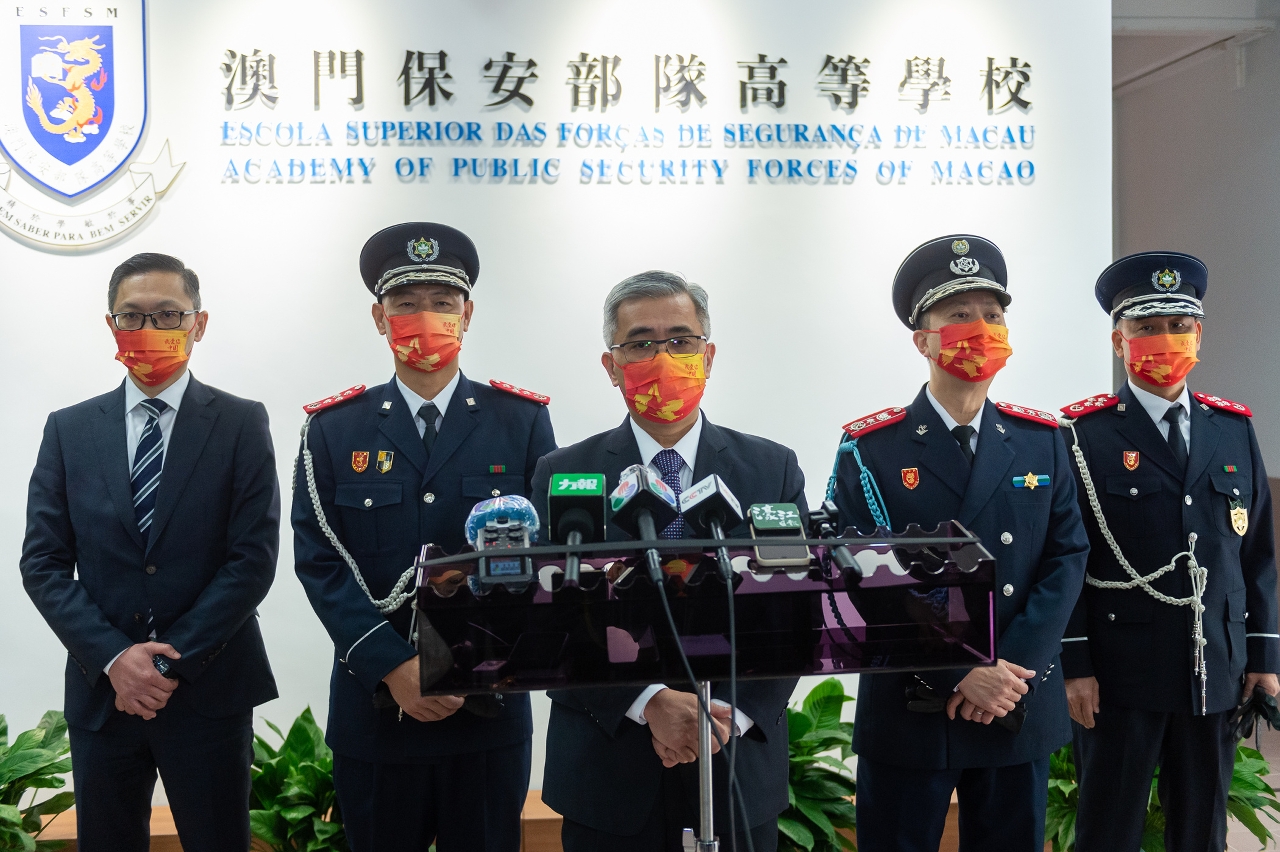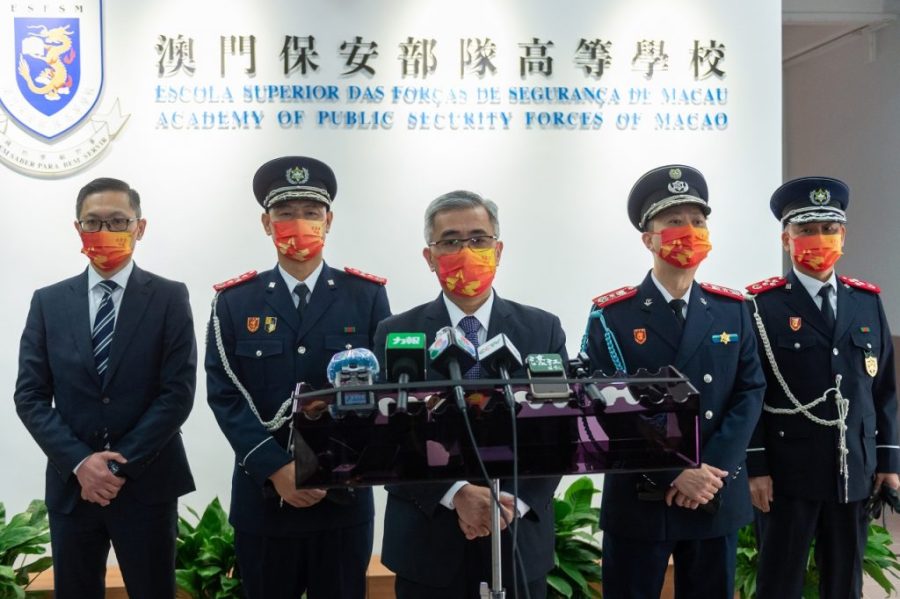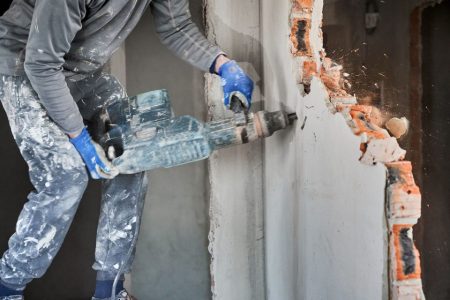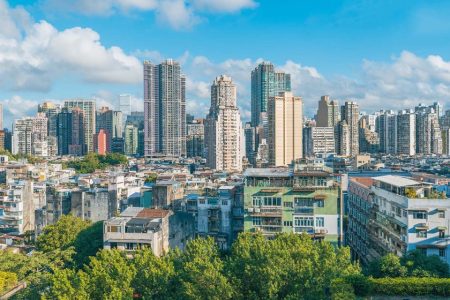Secretary for Security Wong Sio Chak has warned that the upcoming gaming concession bidding process could pose a risk to Macao’s public security.
Wong made the remarks at the Macao Public Security Forces Academy in Coloane after attending a ceremony marking yesterday’s Chinese People’s Police Day.
Macao’s current three gaming concessions and three sub-concessions will expire in June.
The government has still not announced whether it will extend the current gaming concessions and sub-concessions before a bidding process for granting future gaming concessions is ready.
Wong said that he expects Macao’s public security landscape this year to be similar to last year’s. Wong said residents are buying goods online more often due to the Covid-19 pandemic and its adverse impact on Macao’s economy, resulting in a rising number of “contactless crimes” committed on the internet. Wong said that the situation is posing more challenges to law enforcement.
Wong underlined that Macao’s public security has so far not been adversely affected by the recent closures of some local casino VIP rooms, adding that the city’s public security remains stable.
However, Wong said that the government’s upcoming gaming concession bidding process, as well as the ongoing “adjustments” to cooperative relationships between gaming operators and junket operators, would cause certain “changes” to Macao’s gaming industry landscape, which, he said, would possibly pose a certain level of risk to the city’s public security landscape.
Wong also reaffirmed that the government aims to enact amendments to the national security law by the end of this year.
Macao enacted its national security law – the Law on the Defence of National Security – in 2009, based on the Article 23 requirement of the Macao Basic Law.
Wong underlined that the government has been working to improve its legal system on safeguarding national security and its mechanism on the respective law enforcements.
For instance, Wong noted, the government has set up national security law enforcement units – which are operating under the Judiciary Police. In addition, Wong noted, the outline of a bill regulating police telephone tapping was passed by the legislature last month and the bill has been passed to one of its standing committees for article-by-article debate and review.
Wong said that he is preparing a public consultation on the drafting of the local national security law’s amendment bill. After the public consultation process is completed, Wong said, the government will submit the amendment bill to the legislature for debate and vote, adding that the government is aiming for the bill to be enacted by the end of this year.
Wong also reaffirmed that the current version of the local national security law is merely a substantive law, meaning that it does not contain details on the official procedures dealing with national security cases.
Wong said that the government will propose that the amended version of the national security law will also be a procedural law, which will also specify detailed procedures concerning the enforcement of the law.
Wong also said that public awareness campaigns for safeguarding national security will be one of his portfolio’s important tasks this year.
The current version of the Law on the Defence of National Security lists the seven crimes on endangering national security stated by Article 23 of the Macao Basic Law and their penalties.
The seven crimes, according to Article 23 of the Macao Basic Law, are treason, secession, sedition, subversion against the central government, theft of state secrets, political activities by foreign political organisations or bodies, and the establishment of ties by political organisations or bodies in Macao with foreign political organisations or bodies, The Macau Post Daily reported.






